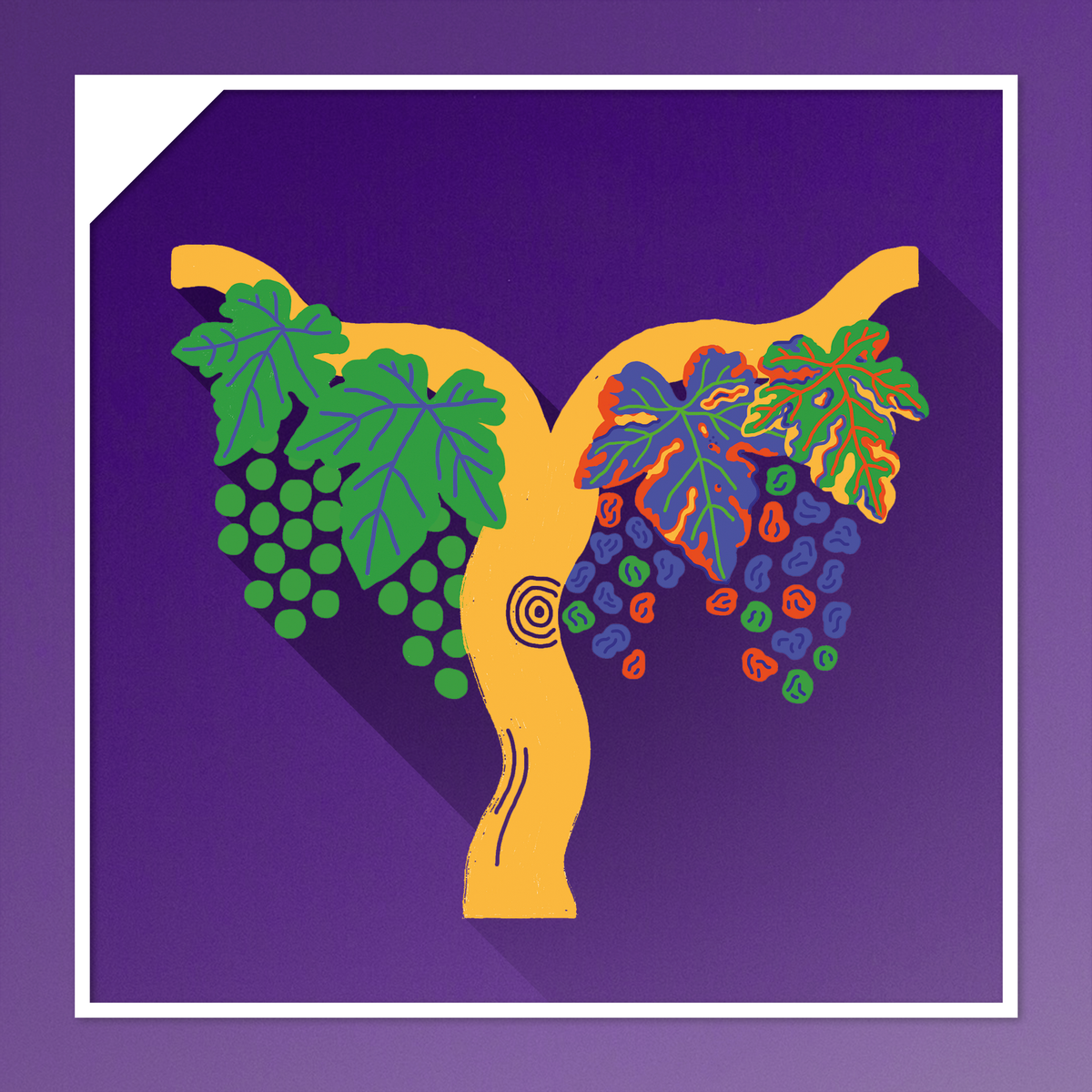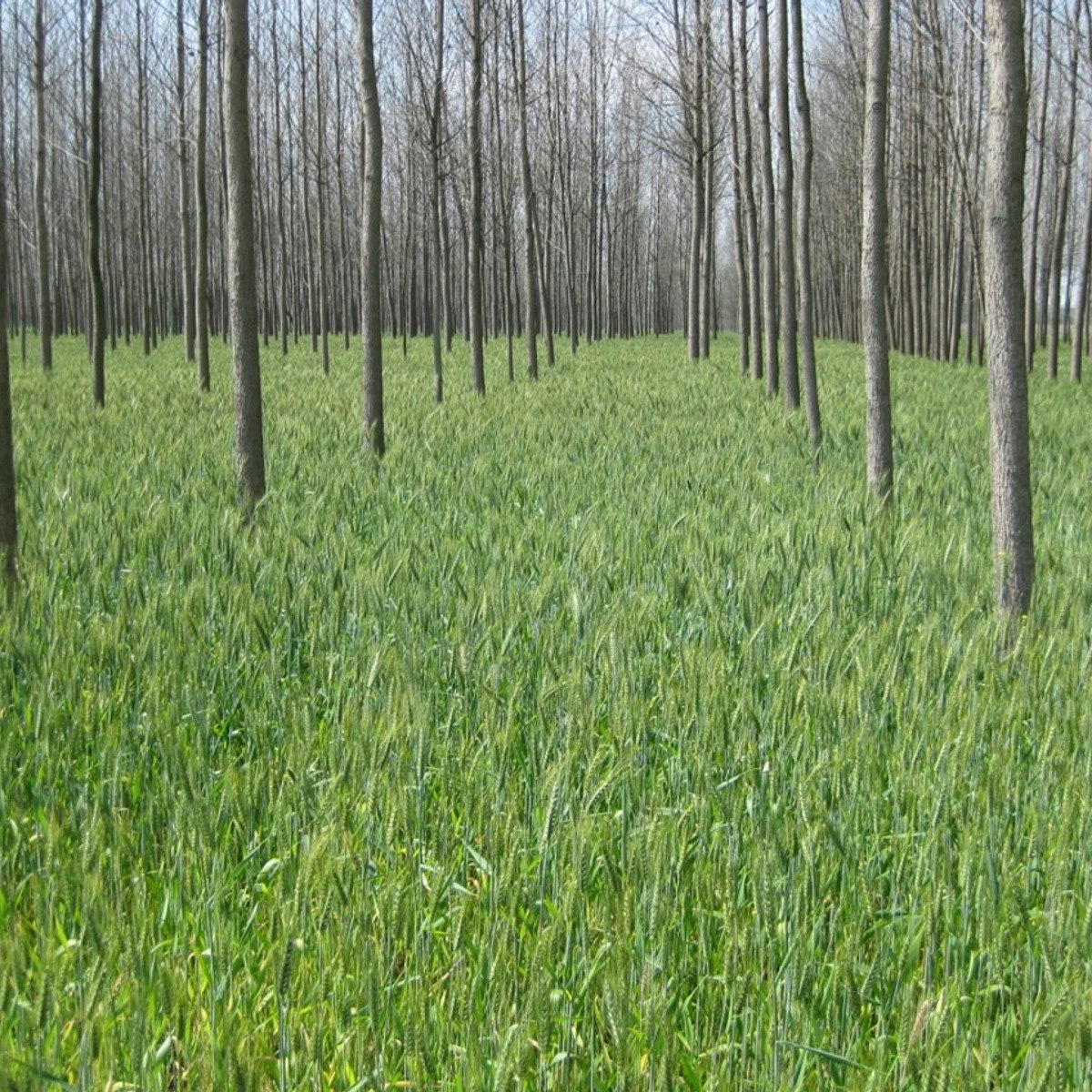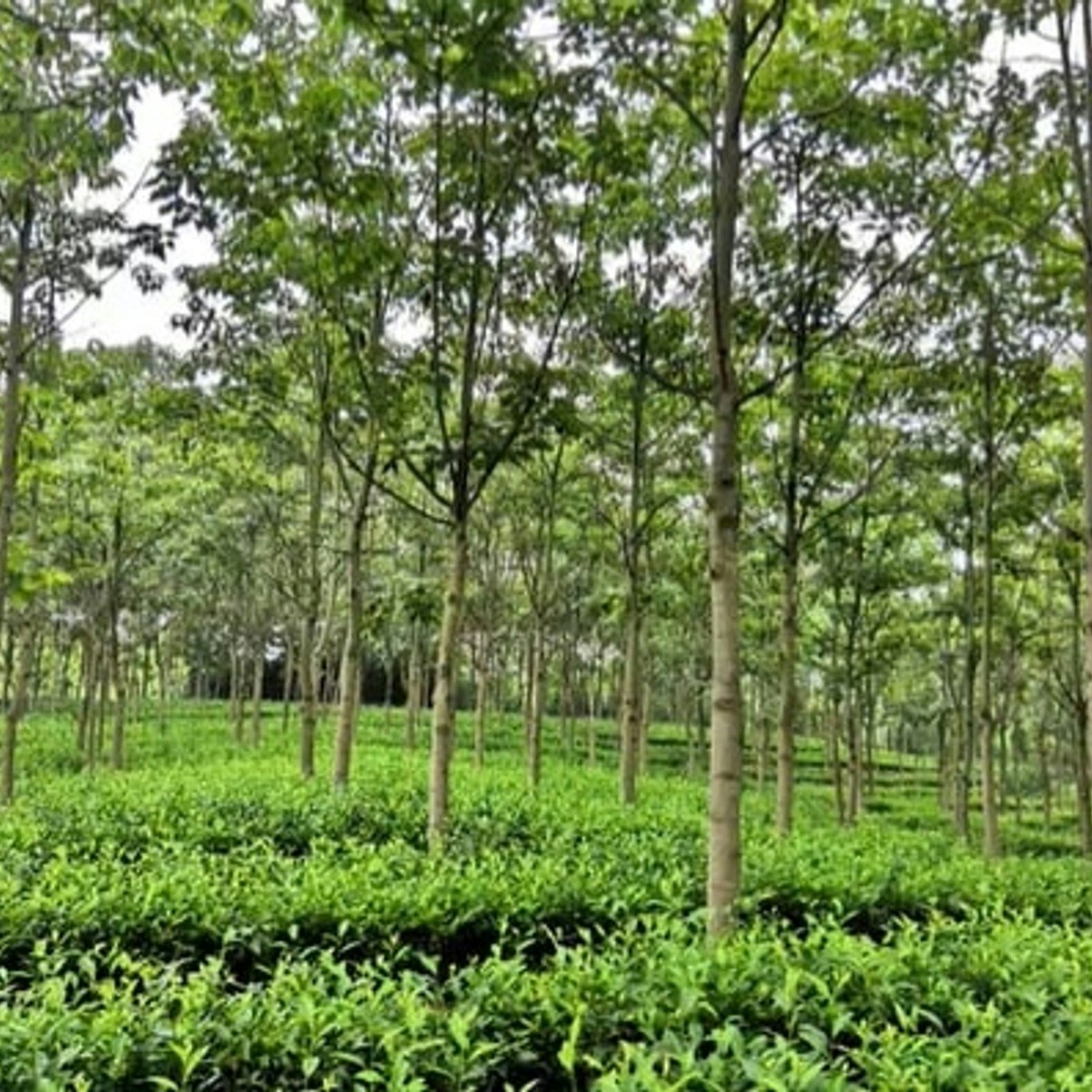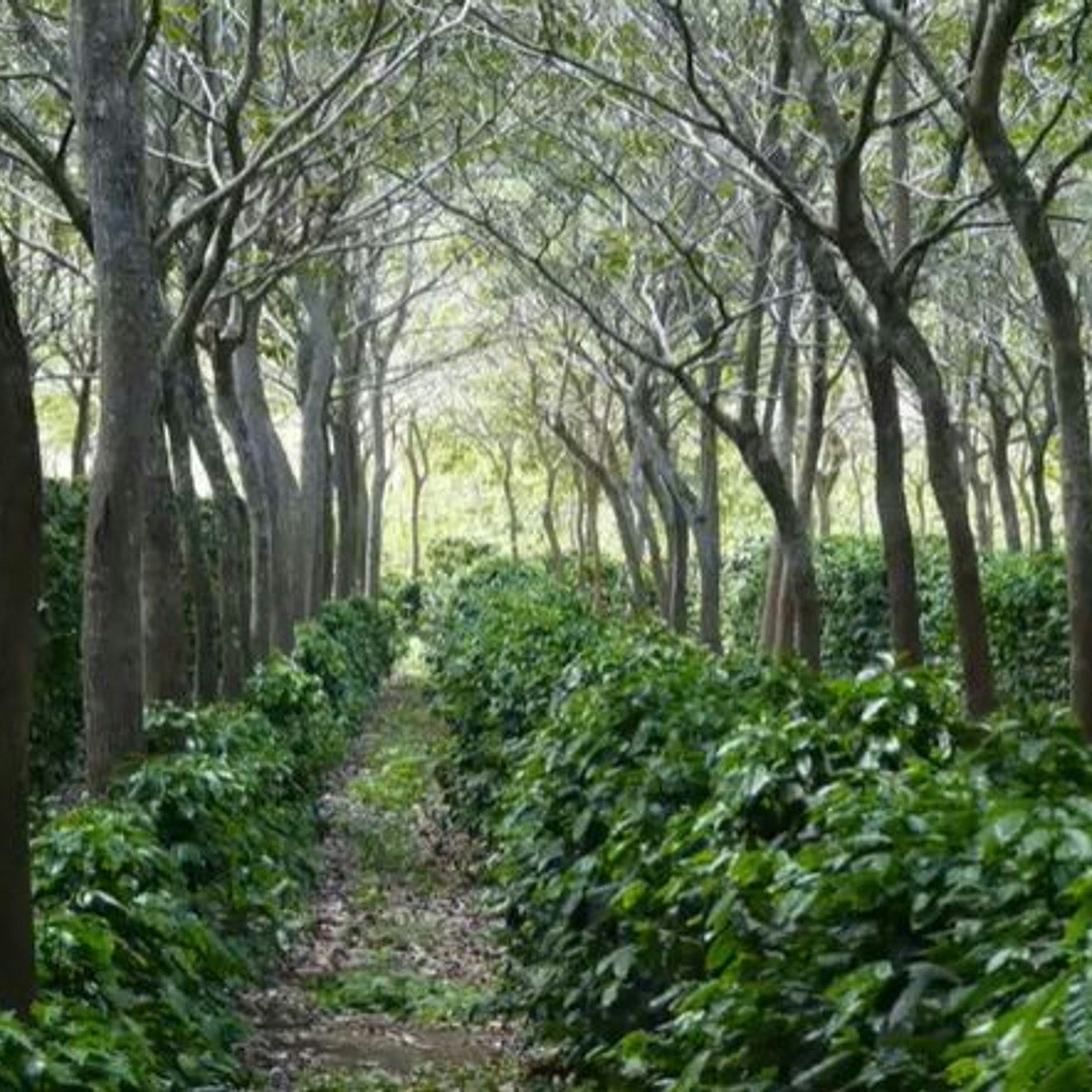Horticulturist
Horticulturist: A Career Guide
Horticulture is the art and science of plant cultivation. Horticulturists apply their knowledge to grow fruits, vegetables, nuts, seeds, herbs, sprouts, mushrooms, algae, flowers, seaweeds, and non-food crops like grass and ornamental trees and plants. This field blends biology, genetics, ecology, and design to improve plant growth, quality, nutritional value, yield, and resistance to environmental stresses.
Working as a horticulturist can be deeply rewarding. Imagine developing a new variety of apple that's both delicious and disease-resistant, designing stunning landscapes that enhance urban environments, or contributing to food security through innovative growing techniques. It's a career that connects you directly with the natural world and allows you to make tangible contributions to our environment and well-being.
Understanding the Role of a Horticulturist
What is Horticulture?
Horticulture focuses on the cultivation of plants, primarily for food, materials, comfort, and beauty. It involves intensive plant management, distinguishing it from agriculture, which often deals with large-scale field crops, or forestry, which focuses on forest management and timber production. Horticulture is a broad discipline encompassing diverse areas like fruit production (pomology), vegetable production (olericulture), and ornamental plants (floriculture and landscape horticulture).
The practice often involves specialized techniques such as plant propagation, breeding, soil management, and pest control, tailored to specific plant types and environments. It combines scientific principles with practical application, aiming for efficient and sustainable plant production and use. Horticulturists work in various settings, including farms, greenhouses, nurseries, botanical gardens, research labs, and landscape design firms.
This field is vital for ensuring food quality and security, enhancing the aesthetic value of our surroundings through landscape design, and promoting environmental sustainability through practices like creating green spaces in cities or developing plants resilient to changing climates. It's a dynamic field constantly evolving with new technologies and research findings.
To get a foundational understanding of plant life, consider exploring introductory courses. These resources can help you grasp the basic principles that underpin all horticultural practices.
Horticulturist vs. Botanist vs. Agricultural Scientist
While horticulturists, botanists, and agricultural scientists all work with plants, their focus differs. A botanist studies plants in a broader biological context, focusing on classification, structure, physiology, genetics, ecology, distribution, and economic importance. Their work is often research-oriented, seeking fundamental knowledge about the plant kingdom.
An agricultural scientist typically focuses on large-scale crop production (like grains or fibers) and livestock management. Their goal is often to maximize yield and efficiency across vast areas, addressing issues like soil fertility, pest management, and crop rotation on a farm-system level. They might work on developing hardier crop varieties for extensive farming operations.
Horticulturists, in contrast, concentrate on garden crops – fruits, vegetables, flowers, and ornamental plants. Their work involves more intensive cultivation techniques, often on a smaller scale than agriculture, with a strong emphasis on plant quality, aesthetics, and specific uses, whether for food, decoration, or landscape enhancement. They bridge the gap between pure plant science and practical application in gardens, nurseries, and landscapes.
Core Objectives and Specializations
The primary goal of horticulture is the successful cultivation and management of plants. This involves understanding plant biology, optimizing growing conditions, and applying techniques to achieve specific outcomes like increased yield, improved quality, enhanced aesthetic appeal, or greater resilience.
Horticulturists often specialize. Some focus on pomology (fruit cultivation), working in orchards or research labs. Others specialize in olericulture (vegetable cultivation), managing market gardens or greenhouse operations. Floriculture involves growing and marketing flowers and foliage plants. Landscape horticulture deals with designing, installing, and maintaining plants in ornamental landscapes.
Additional specializations include arboriculture (care of individual trees), turfgrass management, viticulture (grape cultivation), postharvest physiology (managing produce after harvesting), and horticultural therapy (using plants and gardening for therapeutic purposes). Sustainability is an increasingly important objective, driving innovation in water conservation, organic methods, and integrated pest management across all specializations.
These introductory courses cover fundamental gardening and plant care techniques relevant across many horticultural specializations.
Key Responsibilities of a Horticulturist
Plant Breeding, Propagation, and Genetics
A key responsibility for many horticulturists involves improving plant varieties through breeding and understanding plant genetics. This might mean developing plants with better disease resistance, higher yields, enhanced nutritional value, or specific aesthetic qualities like unique flower colors or forms. They use techniques ranging from traditional cross-pollination to modern genetic analysis.
Propagation is another core task – the process of creating new plants. Horticulturists employ various methods, including seed propagation, cuttings, grafting, layering, and tissue culture. Mastering these techniques ensures the successful multiplication of desired plant varieties, whether for commercial production, conservation, or research.
Understanding plant genetics helps in selecting parent plants for breeding programs and predicting the outcomes of crosses. Some horticulturists may even work with advanced techniques like marker-assisted selection or genetic modification, though the latter remains a specialized area often requiring advanced training.
Soil Management and Pest/Disease Control
Healthy plants require healthy soil. Horticulturists are responsible for managing soil fertility, structure, and health. This involves soil testing, amending soil with compost or other organic matter, managing pH levels, and selecting appropriate fertilizers or nutrient management strategies. Understanding soil science is fundamental.
Controlling pests and diseases is crucial for successful plant cultivation. Horticulturists identify common pests, diseases, and weeds affecting their crops. They develop and implement Integrated Pest Management (IPM) strategies, which prioritize non-chemical controls like biological agents, resistant varieties, and cultural practices, using pesticides judiciously when necessary.
This requires keen observation skills, knowledge of plant pathology and entomology, and awareness of environmental regulations regarding pest control methods. The goal is effective management while minimizing harm to beneficial organisms and the environment.
Landscape Design and Urban Planning Collaboration
Horticulturists often play a role in shaping our living environments, especially those specializing in landscape horticulture. They select appropriate plants for specific sites, considering factors like climate, soil conditions, water availability, maintenance requirements, and aesthetic goals. Their expertise ensures that landscapes are not only beautiful but also functional and sustainable.
Collaboration with urban planners and landscape architects is common. Horticulturists provide critical input on plant selection, planting techniques, and long-term maintenance for public parks, green roofs, roadside plantings, and other urban green spaces. Their knowledge helps create resilient urban ecosystems that provide ecological benefits like stormwater management and habitat creation.
This aspect of horticulture contributes significantly to the quality of life in cities and suburbs. It requires not only plant knowledge but also an understanding of design principles, construction practices, and community needs. Courses focusing on garden design can provide valuable skills in this area.
These courses offer introductions to garden and landscape design principles.
Essential Skills and Competencies
Botanical Knowledge and Plant Identification
A deep understanding of plant biology, physiology, and taxonomy is fundamental. Horticulturists must be able to accurately identify plants, understand their growth requirements, life cycles, and potential problems. This includes recognizing different species and cultivars, as well as identifying signs of stress, disease, or nutrient deficiencies.
Botanical taxonomy, the science of classifying plants, is essential for communication and record-keeping. Knowing scientific names avoids confusion caused by common names, which can vary regionally. This knowledge underpins decisions about plant selection, breeding, and management.
Continuous learning is key, as new varieties are constantly being developed, and understanding plant families helps predict characteristics and requirements. Strong observational skills are vital for noticing subtle changes in plant health or growth patterns.
Technical and Analytical Skills
Modern horticulture increasingly relies on technology and data analysis. Proficiency with tools like Geographic Information Systems (GIS) for mapping planting areas or analyzing site conditions can be advantageous. Understanding climate data and using sensors for monitoring soil moisture, temperature, and nutrient levels are becoming common, especially in precision horticulture.
Analytical skills are needed to interpret data from soil tests, pest monitoring, or yield assessments. Problem-solving abilities are crucial for diagnosing plant issues and developing effective solutions. This might involve adjusting irrigation schedules, modifying fertilizer applications, or choosing the right pest control strategy based on evidence.
Familiarity with laboratory techniques, particularly for those in research or tissue culture, is also important. Basic mechanical skills for maintaining equipment like irrigation systems or greenhouse controls can also be beneficial in many roles.
Business and Management Skills
Many horticulturists, especially those running nurseries, garden centers, landscaping businesses, or farms, need strong business acumen. This includes skills in financial management, marketing, sales, inventory control, and customer service. Understanding market trends and pricing strategies is essential for profitability.
Leadership and personnel management skills are important for those supervising teams of technicians, gardeners, or seasonal workers. Effective communication, delegation, and conflict resolution contribute to a productive work environment. Project management skills are also valuable for planning and executing horticultural projects, from planting a large landscape to managing a research trial.
Even horticulturists not in management roles benefit from understanding business principles, as it helps them appreciate the economic context of their work and contribute more effectively to their organization's goals. For those considering entrepreneurship in areas like specialty crop production or garden design, these skills are indispensable.
Formal Education Pathways
Degree Programs: Associate's, Bachelor's, and Beyond
Formal education in horticulture typically starts with an Associate's or Bachelor's degree. An Associate's degree (2 years) often provides practical, hands-on training suitable for technician roles in nurseries, greenhouses, or landscaping companies. It covers foundational plant science, soil management, pest control, and specific cultivation techniques.
A Bachelor's degree (4 years) in Horticulture, Plant Science, or a related field offers a more comprehensive understanding, blending theory with practice. Coursework usually includes botany, genetics, chemistry, soil science, entomology, plant pathology, and business management. Graduates are prepared for a wider range of roles, including management positions, research assistance, extension work, and specialized technical positions.
For those interested in research, teaching, or high-level management, advanced degrees (Master's or Ph.D.) are often necessary. These programs involve specialized coursework and significant research components, focusing on areas like plant breeding, molecular biology, postharvest physiology, or sustainable horticulture systems.
These courses offer insights into specific cultivation techniques often covered in degree programs.
Specialized Certifications and Training
Beyond formal degrees, various certifications can enhance a horticulturist's credentials and demonstrate expertise in specific areas. For example, becoming a Certified Arborist through organizations like the International Society of Arboriculture (ISA) is crucial for those specializing in tree care.
Other certifications might focus on areas like turfgrass management, pesticide application (often required by state law), landscape design, or organic gardening practices. Professional organizations often offer certification programs that require passing an exam and maintaining continuing education credits.
Short courses, workshops, and online learning modules also provide valuable specialized training. These can cover topics like new irrigation technologies, specific pest identification, greenhouse management software, or sustainable landscaping techniques. Continuous professional development is vital for staying current in this evolving field.
The Role of Research and Academia
Horticulture is deeply intertwined with scientific research. Universities, government agencies (like the USDA), and private companies conduct research to develop new plant varieties, improve cultivation techniques, enhance sustainability, and understand plant responses to environmental changes. A career in horticultural research typically requires a Master's or Ph.D.
Researchers might work in laboratories studying plant genetics or physiology, in greenhouses conducting breeding trials, or in field plots testing new management practices. Their findings are often disseminated through scientific publications, conferences, and extension programs that translate research into practical advice for growers and the public.
Academia also involves teaching the next generation of horticulturists. Professors and instructors at colleges and universities develop curricula, deliver lectures and labs, and mentor students. This path requires strong expertise, communication skills, and a passion for education, usually alongside an active research program.
Career Progression and Opportunities
Entry-Level Positions
Graduates with an Associate's or Bachelor's degree often start in entry-level roles. These can include positions like Greenhouse Technician, Nursery Worker, Propagation Specialist, Landscape Crew Member, Gardener at a botanical garden or estate, or Research Assistant. These roles provide valuable hands-on experience and exposure to the practical aspects of horticulture.
Duties might involve planting, watering, fertilizing, pruning, managing pests, operating equipment, assisting with propagation, maintaining landscapes, or collecting data for research projects. While sometimes physically demanding, these positions build a strong foundation of practical skills and knowledge.
Compensation at the entry level varies based on location, employer, and specific responsibilities, but it provides a starting point for a long-term career. Gaining diverse experiences in these early roles can help identify areas of specialization for future growth.
Advancement and Senior Roles
With experience and potentially further education or certification, horticulturists can advance to more senior positions. These might include Greenhouse Manager, Nursery Manager, Landscape Designer, Golf Course Superintendent, Arborist Consultant, Botanical Garden Curator or Director, Extension Agent, Sales Representative for horticultural suppliers, or Research Scientist.
Senior roles often involve greater responsibility, including managing budgets, supervising staff, developing strategic plans, leading research projects, or providing expert consultation. Strong leadership, communication, and problem-solving skills become increasingly important at this level. Specialization often deepens with career progression.
Continuous learning, networking through professional organizations, and staying updated on industry trends are key to advancement. Some horticulturists may also choose entrepreneurial paths, starting their own nurseries, landscaping businesses, or consulting firms.
Salary Expectations and Job Outlook
Salary levels for horticulturists vary significantly based on education, experience, specialization, geographic location, and type of employer (public vs. private sector, academia, non-profit). Entry-level positions typically offer modest wages, while senior roles, specialized positions (like research scientists or certified arborists), and successful business owners can command higher incomes.
According to the U.S. Bureau of Labor Statistics (BLS), the broader category of Agricultural and Food Scientists, which includes some horticulturists, had a median annual wage of $74,780 in May 2023. However, specific horticultural roles like grounds maintenance workers or nursery workers fall under different categories with varying wage data. It's advisable to research salary expectations for specific roles and locations using resources like the BLS Occupational Outlook Handbook.
The job outlook for horticulturists is generally stable, influenced by factors like population growth, demand for food and ornamental plants, interest in sustainable practices, and urban greening initiatives. Opportunities may be stronger in areas related to sustainable agriculture, landscape design, urban horticulture, and plant biotechnology.
Tools and Technological Integration
Precision Agriculture and Sensors
Technology is transforming horticulture. Precision agriculture techniques, initially developed for large-scale farming, are increasingly adapted for horticultural applications. This involves using sensors to monitor environmental conditions like soil moisture, nutrient levels, temperature, humidity, and light intensity with high spatial resolution.
Data from these sensors allows horticulturists to make highly targeted decisions about irrigation, fertilization, and climate control in greenhouses or fields. This optimizes resource use (water, fertilizer, energy), improves plant health and yield, and reduces environmental impact. Drones equipped with specialized cameras can also be used for monitoring plant health across larger areas.
Familiarity with data analysis and software for managing sensor networks is becoming a valuable skill. These technologies enable more efficient and sustainable production systems, from small greenhouses to large orchards.
Laboratory Equipment and Techniques
For horticulturists involved in research, breeding, or propagation, laboratory skills are essential. This includes working with equipment like microscopes for plant tissue examination or disease diagnosis, autoclaves for sterilizing media and tools (crucial for tissue culture), and growth chambers for controlled environment experiments.
Tissue culture, or micropropagation, allows for the rapid multiplication of plants in a sterile laboratory setting. It requires specific techniques for preparing media, handling plant tissues, and managing cultures. Other lab techniques might involve DNA extraction and analysis for genetic research or pathogen identification.
Understanding laboratory safety protocols and maintaining accurate records are critical. While not all horticulturists work in labs, a basic understanding of these techniques can be beneficial for interpreting research findings or collaborating with researchers.
Digital Tools for Diagnostics and Management
Digital tools are increasingly used for plant disease diagnostics and overall management. Mobile apps equipped with image recognition capabilities can help identify pests or diseases based on photos submitted by growers. Databases and online resources provide extensive information on plant problems and management strategies.
Management software helps nursery and greenhouse operators track inventory, manage production schedules, monitor environmental controls, and analyze costs. Landscape designers use Computer-Aided Design (CAD) software to create detailed plans and visualizations.
These digital tools enhance efficiency, accuracy, and decision-making in various horticultural operations. Staying adaptable and willing to learn new software and digital platforms is important for career success in modern horticulture.
Horticulturist in Climate Resilience
Developing Climate-Resistant Plants
Climate change presents significant challenges to plant cultivation, including altered temperature patterns, changing rainfall distribution, and increased frequency of extreme weather events. Horticulturists play a vital role in developing plant varieties that can withstand these stresses.
Through breeding programs and genetic research, they work to create crops and ornamental plants that are more tolerant to drought, heat, salinity, or new pest and disease pressures emerging due to climate shifts. This involves identifying resilience traits in existing plant populations or related wild species and incorporating them into cultivated varieties.
This work is crucial for ensuring future food security and maintaining healthy landscapes in a changing world. It requires a deep understanding of plant physiology, genetics, and environmental science.
Urban Greening and Heat Island Mitigation
Cities often experience the "urban heat island" effect, where temperatures are significantly higher than in surrounding rural areas. Horticulturists contribute to mitigating this effect through strategic urban greening projects. Planting trees, creating green roofs, and designing parks and green spaces help cool urban environments through shade and evapotranspiration.
Selecting appropriate plant species that thrive in urban conditions and provide maximum cooling benefits is a key role for horticulturists collaborating with urban planners and architects. They also contribute to designing green infrastructure that manages stormwater runoff, improves air quality, and enhances biodiversity in cities.
This application of horticulture directly improves the livability and resilience of urban areas in the face of climate change.
Carbon Sequestration and Sustainable Landscapes
Plants naturally capture carbon dioxide from the atmosphere through photosynthesis, storing carbon in their tissues and the soil. Horticulturists contribute to climate change mitigation by designing and managing landscapes that maximize carbon sequestration.
This involves selecting long-lived plant species (especially trees), promoting healthy soil ecosystems rich in organic matter, and implementing sustainable management practices that minimize greenhouse gas emissions (e.g., reducing fertilizer use, composting green waste). Agroforestry systems, which integrate trees with crops or livestock, are another horticultural approach with significant carbon sequestration potential.
By creating and maintaining carbon-rich landscapes, horticulturists contribute to broader efforts to combat climate change while also providing other ecological benefits.
Challenges in Modern Horticulture
Regulatory Compliance and Environmental Concerns
The horticulture industry faces increasing scrutiny and regulation regarding environmental impact. Compliance with rules related to pesticide and fertilizer use, water consumption, runoff management, and invasive species prevention is a significant challenge. Horticulturists must stay informed about evolving regulations at local, state, and federal levels.
Public awareness and concern about the environmental footprint of horticultural practices also influence the industry. There is growing demand for sustainably produced plants and food, pushing growers towards adopting practices like organic production, integrated pest management, and water conservation techniques.
Navigating these regulations and meeting consumer expectations requires knowledge, careful planning, and often investment in new technologies or practices. Failure to comply can result in fines or damage to reputation.
Labor Issues and Workforce Development
Many sectors of horticulture, particularly production nurseries and farms, rely heavily on manual labor for tasks like planting, pruning, and harvesting. Finding and retaining a skilled and reliable workforce can be a major challenge, especially for seasonal operations. Labor costs are often a significant portion of operating expenses.
Issues related to immigration policy, wage levels, and the physically demanding nature of some horticultural work contribute to labor shortages in certain regions. The industry is exploring solutions like automation, improved ergonomics, and workforce training programs, but labor remains a persistent challenge.
Developing management skills to effectively train, motivate, and retain employees is crucial for horticultural managers. Efforts are also underway to attract younger generations to careers in horticulture through education and outreach.
Climate Volatility and Market Fluctuations
Increasing climate volatility, including unpredictable weather patterns, droughts, floods, and extreme temperatures, poses significant risks to horticultural production. These events can damage crops, disrupt production schedules, and increase the incidence of pests and diseases, impacting yields and profitability.
Market fluctuations also present challenges. Consumer preferences can shift rapidly, affecting demand for certain types of plants or produce. Economic downturns can impact spending on non-essential items like ornamental plants. Competition from imports and fluctuations in input costs (like fuel and fertilizer) add further economic pressure.
Horticulturists need to be adaptable and resilient, employing risk management strategies such as crop diversification, protected cultivation (greenhouses, high tunnels), insurance, and careful market analysis to navigate these uncertainties.
Online Learning and Skill Development
Accessibility of Horticultural Knowledge Online
The internet has revolutionized access to horticultural information and education. Online courses, webinars, virtual workshops, and digital resources make it easier than ever for aspiring and practicing horticulturists to learn new skills and stay updated, regardless of their location.
Online platforms offer courses covering a vast range of topics, from basic gardening principles to specialized techniques like hydroponics, permaculture design, or plant pathology. Many universities and professional organizations now offer online certificate programs or even full degree components.
This accessibility is particularly beneficial for career changers or those in remote areas. OpenCourser helps learners navigate this abundance by providing a searchable catalog of online courses in agriculture and horticulture, complete with reviews and comparisons, making it simple to find relevant learning opportunities.
These courses provide practical skills applicable to various horticultural settings, available through online learning.
Virtual Labs and Digital Credentials
While hands-on experience is irreplaceable in horticulture, online learning is incorporating more interactive elements. Virtual labs and simulations can help students practice concepts like plant identification, disease diagnosis, or even basic genetic crosses in a digital environment before applying them in the real world.
The recognition of digital credentials, such as certificates earned from online courses or specialized training modules, is also growing. These can supplement formal degrees and demonstrate specific competencies to potential employers. Platforms like OpenCourser allow learners to track their progress and even manage lists of completed courses to showcase their learning journey.
Learners can find guidance on making the most of these credentials in resources like the OpenCourser Learner's Guide, which offers tips on adding certificates to resumes or LinkedIn profiles.
Hybrid Learning and Lifelong Development
Hybrid learning models, combining online instruction with in-person fieldwork or lab sessions, offer a flexible approach that balances theoretical knowledge with practical skill development. This model is becoming increasingly popular in formal horticultural education programs.
For working professionals, online resources provide crucial avenues for lifelong learning and continuous professional development. Staying current with new research findings, technologies, and best practices is essential in this dynamic field. Online access allows horticulturists to pursue learning without significant disruption to their work schedules.
Whether you're just starting or looking to advance your career, embracing online learning tools can significantly enhance your knowledge base and skill set in horticulture. It empowers self-directed learning tailored to individual career goals and interests.
Global Horticulture Markets
Emerging Trends: Vertical Farming and Controlled Environments
Vertical farming and other forms of controlled environment agriculture (CEA) represent rapidly growing sectors within global horticulture. These systems involve growing crops indoors, often in vertically stacked layers, using hydroponic, aeroponic, or aquaponic methods and artificial lighting.
CEA offers potential advantages like year-round production, reduced water usage, minimal pesticide needs, and the ability to locate farms closer to urban consumers, reducing transportation costs and emissions. While challenges remain regarding energy consumption and initial investment costs, this sector presents new opportunities for horticulturists with expertise in plant physiology, environmental control systems, and data management.
The demand for locally grown, fresh produce is driving investment and innovation in CEA technology globally, creating specialized career paths within horticulture.
International Trade and Regulations
Horticulture is a global industry, with significant international trade in products like fruits, vegetables, flowers, and planting materials. Horticulturists involved in businesses that export or import these goods must navigate complex regulations related to phytosanitary standards (preventing pest and disease spread), quality grades, labeling, and tariffs.
Understanding international market demands, quarantine requirements of different countries, and logistics for transporting perishable goods is crucial. Organizations like the World Trade Organization (WTO) and national plant protection organizations set the framework for much of this trade.
This global dimension offers opportunities for horticulturists interested in international business, supply chain management, or regulatory affairs related to plant products.
Cross-Cultural Landscape Design and Plant Use
Landscape horticulture also has a global dimension, with varying aesthetic preferences and plant uses across different cultures. Increased globalization and migration create demand for landscape designs that incorporate diverse cultural influences or utilize plants adapted to specific regional climates worldwide.
Horticulturists working in international landscape design or for multinational companies may need cultural sensitivity and knowledge of plant palettes suitable for different global regions. There are also opportunities in ethnobotany, studying how different cultures traditionally use plants for food, medicine, or materials, which can inform modern horticultural practices or product development.
Understanding these cross-cultural aspects can open doors to unique career niches, such as designing culturally specific gardens or sourcing unique plant varieties from around the world for introduction into new markets.
Frequently Asked Questions
Can horticulturists work in pharmaceutical or research industries?
Yes, some horticulturists find roles in industries beyond traditional agriculture and landscaping. The pharmaceutical industry, for example, relies on plants as sources for many medicinal compounds. Horticulturists with expertise in plant chemistry, genetics, or specialized cultivation techniques (like growing medicinal herbs under controlled conditions) may work in research and development or production settings.
Similarly, industries involved in cosmetics, natural flavors and fragrances, or biofuels may employ horticulturists for sourcing, cultivating, or researching plant-derived ingredients. Research institutions studying plant biology, genetics, or ecology also offer numerous opportunities.
These roles often require specialized knowledge, frequently gained through advanced degrees (Master's or Ph.D.) focusing on areas like plant biotechnology, phytochemistry, or molecular biology.
Is licensure or specific certification required for practice?
Licensure requirements vary depending on the specific role and location. For example, individuals applying certain types of pesticides are typically required by state law to obtain a Pesticide Applicator License, which involves training and passing an exam.
While a general "horticulturist license" is uncommon, specific certifications are often highly recommended or even required for certain specializations. As mentioned earlier, Certified Arborist status is standard for professional tree care. Landscape architects often require state licensure, though landscape designers may not, depending on the scope of work.
Voluntary certifications offered by professional organizations can significantly enhance credibility and job prospects, even when not legally mandated. Always check the specific requirements for your desired role and region.
How is automation impacting job prospects in horticulture?
Automation is increasingly being adopted in horticulture to address labor shortages, improve efficiency, and perform tasks requiring high precision. This includes robotic systems for planting, harvesting, pruning, and monitoring plants in greenhouses and fields, as well as automated environmental controls.
While automation may reduce demand for some manual labor tasks, it also creates new opportunities for horticulturists with technical skills. There is a growing need for individuals who can design, operate, maintain, and manage these automated systems, as well as analyze the data they generate.
The impact varies by sector; highly controlled environments like greenhouses may see more automation than diverse landscape maintenance. Overall, automation is changing the skillset required, emphasizing technical proficiency alongside traditional horticultural knowledge.
What is the typical balance between fieldwork and office/lab work?
The balance between fieldwork and indoor work (office or lab) varies greatly depending on the specific role. Production-focused roles like farm or nursery managers, greenhouse growers, or landscape supervisors typically involve a significant amount of time outdoors or in growing environments, overseeing operations and working directly with plants.
Research scientists, educators, landscape designers, consultants, and sales representatives may spend more time in labs, offices, or classrooms, with fieldwork being more periodic for data collection, site visits, or demonstrations. Roles like botanical garden curators might involve a mix of fieldwork, collections management, and administrative tasks.
Entry-level technician roles often involve more fieldwork, while senior management positions may shift towards more office-based work involving planning, budgeting, and supervision. Consider your preference for indoor versus outdoor work when exploring different career paths within horticulture.
Are there good entrepreneurship opportunities in horticulture?
Yes, horticulture offers numerous opportunities for entrepreneurship. Many horticulturists start their own businesses, such as retail nurseries or garden centers, landscape design and maintenance companies, specialty crop farms (e.g., organic vegetables, cut flowers, medicinal herbs), fruit orchards, or consulting services.
Niche markets, like growing heirloom vegetables, native plants, or specific ornamental varieties, can be particularly fruitful for small businesses. Services like horticultural therapy, urban garden installation, or specialized pruning also offer entrepreneurial avenues. Success requires not only horticultural expertise but also strong business planning, marketing, and financial management skills.
Starting a business involves risk and hard work, but it allows for autonomy and the ability to directly pursue one's passion within the field. Resources from small business associations and agricultural extension services can provide valuable support for aspiring horticultural entrepreneurs.
What are the long-term career prospects and longevity?
Horticulture offers diverse and long-lasting career paths. The fundamental need for food, aesthetically pleasing environments, and sustainable land management ensures continued relevance for the field. With experience, professionals can specialize, move into management, transition into education or research, or start their own ventures.
Career longevity often depends on adaptability and continuous learning. Staying updated on new technologies, sustainable practices, and market trends is crucial. While some roles can be physically demanding, potentially impacting longevity in those specific jobs, experience often allows transitions into less physically intensive positions like consulting, design, or management.
The growing emphasis on environmental sustainability, urban greening, and local food systems suggests strong long-term prospects for horticulturists who can contribute solutions in these areas. Passion for plants and a commitment to lifelong learning are key ingredients for a fulfilling and enduring career in horticulture.
Embarking on a career as a horticulturist is a journey into the fascinating world of plants, blending science, art, and practical skill. It offers diverse pathways, from nurturing crops that feed communities to designing landscapes that enrich lives. While challenges exist, the opportunity to work closely with nature and contribute to a greener, more sustainable world makes it a deeply rewarding pursuit for many. Whether you are just starting to explore or seeking to deepen your expertise, the field of horticulture holds abundant possibilities for growth and impact.































